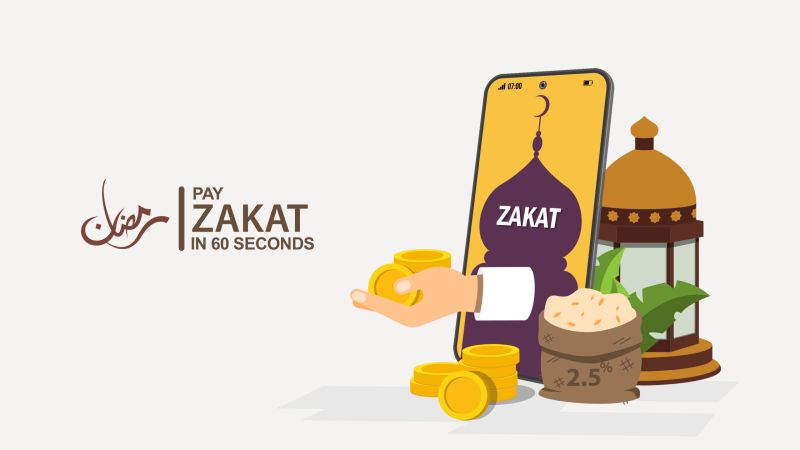Making Duʿāʾ and Dhikr at the End of the Prayer
Imām Muḥammad ibn Ṣāliḥ al-ʿUthaymīn
Making Duʿāʾ and Dhikr at the End of the Prayer
Imām Muḥammad ibn Ṣāliḥ al-ʿUthaymīn


Invoking Allāh (Duʿāʾ) Before the Taslīm and Remembering Him (Adhkār) After It
After stating the tashahhud1 in the final jalsah (sitting) and its associated invocation in which refuge is sought from four things2, one may then invoke Allāh with whatever invocation he wishes before the taslīm. The evidence for this is the ḥadīth in which the Prophet (صلى الله عليه وسلم) taught Ibn Masʾūd (رضي الله عنه) the tashahhud and said: “Then select whichever invocation you wish”.3 Despite this, a person should begin invoking Allāh specifically with the invocations that have been narrated in the Sunnah. This is because the invocations that have been narrated from him (صلى الله عليه وسلم) are superior to any invocation that could be formulated by anyone other than him. Therefore, if a person has memorised invocations from the Sunnah, he should start with them before invoking Allāh with whatever he chooses [as in the ḥadīth]. Among the invocations that have been narrated in this regard is the one mentioned in the ḥadīth of Abū Bakr (رضي الله عنه) in which he said to the Prophet (صلى الله عليه وسلم): O’ Messenger of Allāh! Teach me an invocation that I may say in my ṣalāh.” He (صلى الله عليه وسلم) replied:
“Say
اللَّهُمَّ إِنِّي ظَلَمْتُ نَفْسِي ظُلْمًا كَثِيرًا، وَلَا يَغْفِرُ الذُّنُوبَ إِلَّا أَنْتَ، فَاغْفِرْ لِي مَغْفِرَةً مِنْ عِنْدِكَ، وَارْحَمْنِي، إِنَّك أَنْتَ الْغَفُورُ الرَّحِيمُ
O’ Allāh! Indeed, I have oppressed myself [by engaging in sin] with frequency, and none forgives sins except for You, so grant me forgiveness from Yourself, and have mercy on me. For, indeed, You are the Oft-Forgiving, Most Merciful [to Your believing servants]”.4
Also, among the invocations narrated in the Sunnah:
اللَّهُمَّ أَعِنِّي عَلَى ذِكْرِكَ، وَشُكْرِكَ، وَحُسْنِ عِبَادَتِكَ
“O’ Allāh! Aid me in Your remembrance, Your gratitude, and achieving excellence in Your worship”5
This was the invocation that the Messenger (صلى الله عليه وسلم) ordered Muʾādh ibn Jabal (رضي الله عنه) to say at the ends of every obligatory ṣalāh. In some wordings of this ḥadīth, the Prophet (صلى الله عليه وسلم) ordered him to say it every single time he prays.
Commensurating between these two narrations, we interpret this to mean: at the end of every ṣalāh (in prayer). This opinion is more correct than the view that this invocation should be said after the taslīm6, as the time after the prayer has been designated for the remembrance (dhikr) of Allāh:
فَإِذَا قَضَيْتُمُ الصَّلَاةَ فَاذْكُرُوا اللَّهَ
“When you have finished al-ṣalāh (the congregational prayer), remember Allāh”
(Al-Nisāʾ, 4:103)
Every invocation narrated in the Sunnah that has been specified to be said at the end of ṣalāh should be interpreted to mean whilst one is in the final jalsah, before the taslīm.
As Shaykh al-Islām Ibn Taymiyyah (رحمه الله) was once asked: “Why should these invocations be said within the ṣalāh itself if the ḥadīth clearly mentions ‘at its end’?”
He answered: “The end of something may be considered a portion of it, just as the rump of an animal is considered a portion of its body.” In the same way, the “end of the ṣalāh” stated in the Sunnah may refer to a part of it. Since the Messenger (صلى الله عليه وسلم) has guided us towards invoking Allāh after the final tashahhud, at the end of the ṣalāh itself, then the proper place for this invocation is before the taslīm whilst a person is still actively praying.
As for after the taslīm and the conclusion of the ṣalāh itself, a person should engage in the remembrance of Allāh. For this reason, the position that invocations should be made before the taslīm—in no way—contradicts the statement of the Messenger (صلى الله عليه وسلم): “Glorify Allāh [i.e., by saying ‘subḥānallāh’], praise Him [i.e., by saying ‘al-ḥamdullilāh’], and attest to His greatness [i.e. by saying ‘Allāhu akbar’] thirty-three times at the end of every ṣalāh”.7 For it is well-known and fully agreed upon that the time for the remembrance being referred to here is after the taslīm. This is also consistent with the aforementioned āyah “When you have finished al-ṣalāh (the congregational prayer), remember Allāh”. Just as the invocations that are said before the taslīm, at the end of the ṣalāh, is evidenced by the aforementioned ḥadīth in which the Prophet (صلى الله عليه وسلم) said to Ibn Masʿūd after teaching him the tashahhud: “Then select whichever invocation you wish”.
Logical Reasoning for Invoking Allāh Before the Taslīm
So invoke Allāh before the taslīm, not only because this is the practice that the Messenger (صلى الله عليه وسلم) counselled and guided towards, but also because a person remains actively engaging in a private communication with his Lord, whilst he is still performing the ṣalāh. This private communication is subsequently concluded by the taslīm. In consideration of this, a person invoking Allāh in a state wherein he is privately engaged with his Lord is far superior to him invoking Allāh after he has concluded and left that state (of prayer). This is a form of logical reasoning that would bolster the view that invocations should be made before the taslīm.
Addressing the Common Innovation of Habitually Invoking Allāh After Every Ṣalāh
As for the practice of certain groups of people that invoke Allāh after every taslīm— regardless of whether they have performed a supererogatory or obligatory ṣalāh—this is an absolutely baseless practice that was never narrated from the Prophet (صلى الله عليه وسلم) to the best of our knowledge. The only exception to this, as narrated in the Sunnah, was when the disbelievers of Quraysh threw the remnants of a slaughtered camel on the back of the Messenger (صلى الله عليه وسلم) whilst he was in sujūd. In response, the Prophet (صلى الله عليه وسلم) invoked Allāh after the taslīm, raising his voice when doing so.8 Concerning this, we may interpret this action as occurring in relation to a specific circumstance, for the express purpose of frightening those disbelievers. For, if he was to invoke Allāh against them during the ṣalāh itself, they would not have heard him.
As for the ḥadīth in which the Prophet (صلى الله عليه وسلم) was asked: “Which invocation is most listened to?” That is, heard, he (صلى الله عليه وسلم) replied: “Those made in the last part of the night and at the ends of the obligatory prayers”.9 There are those who interpret this ḥadīth as referring to the time after the taslīm, because the same phrasing in used in the aforementioned ḥadīth: “Glorify Allāh [i.e., by saying ‘subḥānallāh’], praise Him [i.e., by saying ‘al-ḥamdullilāh’], and attest to His greatness [i.e., by saying ‘Allāhu akbar’] thirty-three times at the end of every ṣalāh” which is clearly in reference to the time after the taslīm. We respond to this saying: This interpretation is not a stipulation. Rather, it is obligatory for us to interpret the ‘ends of ṣalāh’ mentioned in these ḥadīth as referring to the end of the prayer itself, as evidenced by the aforementioned ḥadīth of Ibn Masʾūd (رضي الله عنه) in which he (صلى الله عليه وسلم) taught him to invoke Allāh after the tashahhud. This ḥadīth of Ibn Masʿud (رضي الله عنه) should be used to interpret the other ḥadīth that mentions invoking Allāh at the end of ṣalāh, as different ḥadīth may be used to explain one another. As for the end of the prayer, after the taslīm, it is a time designated for remembrance and not invocation, as in the āyah: “When you have finished al-ṣalāh (the congregational prayer), remember Allāh”.
In consideration of this, we say: Any ḥadīth that mentions the end of the ṣalāh should be interpreted based on the type of remembrance being alluded to. If the ḥadīth is mentioning a form of remembrance (dhikr), then it should be interpreted as being after the taslīm. If the ḥadīth mentions invoking Allāh (i.e., making duʿāʾ), then it is referring to the end of the ṣalāh, before the taslīm, after the final tashahhud.
[Q]: The ‘end’ of anything always comes after it, as in the ḥadīth: “A man once freed his servant-boy after his end”10 that is, after his death?
[A]: In Arabic, the word ‘end’ here simply means that which is behind the back of something, which may or may not be a portion of it. It is the context and linguistic cues that allow the specification of that which is a portion of something or otherwise (i.e., inside or outside of it). For this reason, we say: “The end or rump of an animal” which is a portion of its body. Therefore, the end being referred to must be interpreted in consideration of the circumstance and context.
Regarding the practice of habitually invoking Allāh after the performance of supererogatory prayer that is closely adhered to in a plethora of Muslim communities—to the extent that if the iqāmah is being called whilst they are concluding their supererogatory prayer with the taslīm, they will make an invocation first by raising their hands quickly before joining the congregation; this raising of the hands is so expeditious that the onlooker would doubt whether this person has even said an invocation at all. After this raising of the hands, they will wipe their faces and each hand on the other, and then stand to pray. This is practiced with such eagerness by them that one may surmise they believe it to be verging on an obligation. This is a practice that is undoubtedly baseless. For this reason, it is most befitting that the students of Islamic knowledge notify their respective communities regarding this. Although this should be done with calmness, gentleness, mildness, ease and respect, as the uneducated rabble will seek to distance themselves from those who object to their oft-repeated practices. Therefore, when advising them, one should do so with wisdom and exemplary teaching, showing forbearance, understanding, mildness and grace. Unsurprisingly, how frequent are we asked questions concerning the ruling on raising the hands in invocation after praying supererogatory prayer! Those who pose such questions tend to surmise that the entire issue is predicated on whether to raise the hands or not [thinking that invoking Allāh at that time is somewhat of a foregone conclusion], all the while this issue is not actually centred upon the raising of one’s hands. Rather, the crux of the issue is related to whether one should even be invoking Allāh at that time, regardless of whether one chooses to raise his hands when making this invocation or not. In actuality, anyone who desires to invoke Allāh should do so before the taslīm as this is the legislated time for invocation.
The Types of Invocation Made Before the Taslīm
As for the types of invocation made in this place, some scholars hold the opinion that one should only invoke Allāh for matters pertaining to the hereafter rather than this worldly life. For example, one should not say before the taslīm: “O’ Allāh! Grant me an elegant, expansive, luxurious home” or “O’ Allāh! Grant me a beautiful wife” or “O’ Allāh! Grant me tremendous wealth” or “O’ Allāh! Grant me a luxurious car” or the likeness of such invocations. They reason that all of these matters pertain to this worldly life, to the extent that some scholars say: “Anyone who invokes Allāh for a worldly matter while praying has invalidated his ṣalāh”.11 This opinion is undoubtedly quite weak. The correct opinion in this matter is that there is nothing wrong with a person invoking Allāh for a matter that pertains to this worldly life because the very act of invoking Allāh is itself a form of worship—regardless of whether the matter being requested in the invocation is related to this worldly life or otherwise. There is no safety or sanctuary for anyone except in returning to Allāh. The Messenger (صلى الله عليه وسلم) said: “A servant is closest to his Lord whilst he is in sujūd”12, and he (صلى الله عليه وسلم) also said: “As for sujūd, invoke Allāh frequently while in it. For it is most befitting that those invocations are answered”13, and in the aforementioned ḥadīth of Ibn Masʿūd (رضي الله عنه) after mentioning the tashahhud: “Then select whichever invocation you wish”. Furthermore, a person cannot hope to find himself committedly facing Allāh with full concentration, completely free of distraction and external influences except when in a state of ṣalāh. In consideration of this, how could we say: “Do not invoke Allāh while performing ṣalāh for a worldly matter that you are in dire need of”. Such a command is nonsensical, quite far from the truth in this issue. For, as narrated in the ḥadīth, the Messenger (صلى الله عليه وسلم) said: “Let each of you invoke his Lord for anything he needs, even if it be just his shoelaces”14. Shoelaces are undoubtedly a worldly matter. Therefore, the correct view in this issue—without a doubt—is that a person should invoke Allāh after the tashahhud seeking goodness in both this world and the hereafter. The most comprehensive, encompassing invocation made in this regard is the invocation:
رَبَّنَا آتِنَا فِي الدُّنْيَا حَسَنَةً وَفِي الْآخِرَةِ حَسَنَةً وَقِنَا عَذَابَ النَّارِ
“”Our Lord! Give us in this world that which is good and in the Hereafter that which is good, and save us from the torment of the Fire!””
(Al-Baqarah, 2:201)
Invoking Allāh for Specific Individuals While Praying
[Q]: Is it permissible to invoke Allāh after the tashahhud for a specific person? For example, to say: “O’ Allāh! Reward so-and-so for the great service he provided me” or “O’ Allāh! Forgive So-and-So”.
[A]: Such an invocation is permissible. The evidence of this is that it was authentically confirmed that the Messenger (صلى الله عليه وسلم) invoked Allāh against certain individuals while performing ṣalāh, and invoked Allāh on behalf of other people. For example, he (صلى الله عليه وسلم) invoked Allāh’s aid for the impoverished people of Makkah, and invoked Allāh against their oppressive tyrants.15 Although he (صلى الله عليه وسلم) was only forbidden from seeking that Allāh’s curse be upon those tyrants.16
As for invoking Allāh using the personal (2nd person) pronoun, like saying in ṣalāh: “May Allāh forgive you O’ Shaykh al-Islām Ibn Taymiyyah” and the likeness of such statements, the jurists have said that such invocations invalidate the ṣalāh because this pronoun is only utilised when speaking to someone present and it is impermissible for someone to engage in speech with another person whilst performing ṣalāh. As the Messenger (صلى الله عليه وسلم) said: “Indeed, even a small amount of conversation (i.e., with others) is most unbefitting of this ṣalāh”17 They view the Prophet (صلى الله عليه وسلم) to be an exception in this regard, as one uses the personal pronoun to invoke Allāh for him (صلى الله عليه وسلم) as part of the tashahhud when performing ṣalāh: “May peace be upon you O’ Prophet (صلى الله عليه وسلم)”. Besides him (صلى الله عليه وسلم), the jurists have taken the position that it is impermissible for one to invoke Allāh using such (2nd person) pronouns while in ṣalāh.
I, however, hold some reservations regarding this view. This is because if the mere statement “May Allāh forgive you O’ so-and-so” is said in ṣalāh, the praying person possesses no inkling that he is speaking to the actual person while performing the prayer despite the use of this pronoun. Rather, its usage is related more strongly to the degree of remembrance and acknowledgment of the person mentioned by the invoker, such that it is as if the person is present before him. It was also authentically confirmed that the Prophet (صلى الله عليه وسلم) addressed the Shayāṭīn whilst praying who were attempting to distract and truncate his ṣalāh, saying: “I curse you with the complete curse of Allāh”18, speaking to them directly. Some scholars say: This ḥadīth occurred prior to the legislative prohibition of speaking in ṣalāh, while others interpret it in other ways. However, all interpretations provided in this vein require re-consideration.
The most apparent, correct position in this issue is that it is impermissible for one to speak to another person while performing ṣalāh in his regular, normal manner that he is accustomed to outside of ṣalāh. For example, it is impermissible for him to say: “O’ so-and-so! Come here!” This is because such statements are considered among the normal speech of the Children of Ādam and therefore invalidate the ṣalāh. However, re-consideration is required for the opinion that postulates that a person would have invalidated their ṣalāh by—upon remembering a person’s goodness whilst praying—stating: “May Allāh forgive you O’ so-and-so”.
In conclusion, one may extricate himself from this issue completely by simply saying: “O’ Allāh! Forgive so-and-so” instead of “May Allāh forgive you O’ so-and-so”. As there is complete agreement regarding the permissibility of the former wording.
Endnotes:
[1] See A Detailed Explanation of the Tashahhud: Invocations Made in the Final Jalsah (Sitting) of Ṣalāh (forthcoming)
[2] Four things:
1. the punishment of Jahannam,
2. the punishment in the grave,
3. tribulations of living and dying,
4. Trial of the false Messiah al-Dajjāl.
[3] Authentic: narrated by al-Bukhārī: 6328 and Muslim: 402.
[4] Authentic: narrated by al-Bukhārī: 799.
[5] Authentic: narrated by Abū Dāwūd: 1522 and graded authentic by Shaykh al-Albānī in Ṣaḥīḥ al-Targhīb wa al-Tarhīb: 1596.
[6] Taslīm: the two salāms that are said at the end of ṣalāh to conclude the prayer.
[7] Authentic: narrated by al-Bukhārī: 843 and Muslim: 595.
[8] Authentic: narrated by al-Bukhārī: 2776.
[9] Authentic by corroboration: narrated by al-Tirmidhī: 3499 and graded authentic by corroboration by Shaykh al-Albānī in Ṣaḥīḥ al-Targhīb wa al-Tarhīb: 1648.
[10] Authentic: narrated by al-Bukhārī: 6716 and Muslim: 997.
[11] See Al-Rawḍ al-Murbiʿ 2:76-78.
[12] Authentic: narrated by Muslim: 482.
[13] Authentic: narrated by Muslim: 479.
[14] Authentic: narrated by al-Tirmidhī: 3604
[15] Authentic: narrated by al-Bukhārī: 2932
[16] Authentic: narrated by al-Bukhārī: 675.
[17] Authentic: narrated by Muslim: 537.
[18] Authentic: narrated by Muslim: 542.
Source: Al-Sharḥ al-Mumtiʿ 3:200-208
Translated by: Riyāḍ al-Kanadī
Most Popular: Last 30 Days

Everyone’s Speech Is Subject to Acceptance or Rejection Except the Prophet (ﷺ)

The Beautiful Names of Allāh: How to Practice What They Entail in Our Lives










